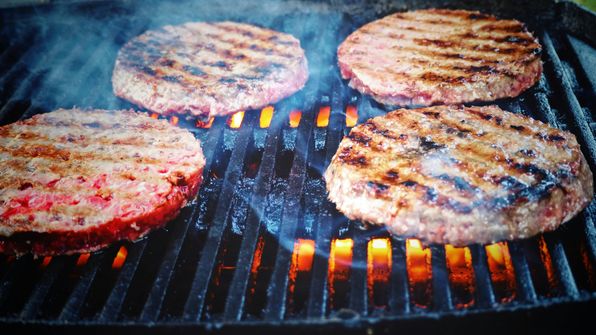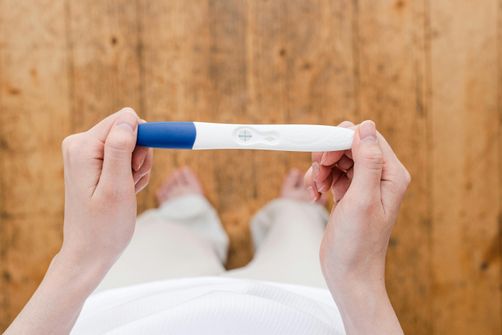
Social Success on the Carnivore Diet: Tips for Staying Committed at Gatherings and Restaurants
Social gatherings often mean a spread of carb-heavy foods and tempting desserts that can make sticking to the carnivore diet feel tricky. But with a b...

The idea of a diet where you can eat all the steak, bacon, and eggs you want might sound like a dream come true, especially if you’ve spent decades watching your carb intake. But for women over 60, diving into the carnivore diet—a regimen that eliminates all plant-based foods in favor of an all-animal product menu—might be a little too extreme.
Let’s chew the fat on what this diet is all about, its potential benefits, the serious risks it poses, and whether it’s truly the right choice for women in this age group.

The carnivore diet is as straightforward as it gets: if it didn’t come from an animal, it’s off the table. That means meat, fish, eggs, and some dairy are your staples, while fruits, vegetables, grains, and legumes are completely out. Fans of this diet argue that it can lead to weight loss, reduced inflammation, and more, but the science behind these claims—especially for older women—is a mixed bag.
As we age, maintaining muscle mass becomes increasingly important. For women over 60, the high protein intake of the carnivore diet could help combat sarcopenia, the age-related loss of muscle mass that can impact mobility and overall health.
Stat Alert: According to the Standford Scientists, older adults need about 1.2 grams of protein per kilogram of body weight to maintain muscle mass. On the carnivore diet, you’ll likely exceed this, which could be beneficial for muscle maintenance.
One of the most appealing aspects of the carnivore diet is its simplicity. There’s no need to count calories, track macros, or juggle different food groups. If it’s meat, you can eat it. This straightforward approach can be especially appealing if you’re tired of the complex meal planning that comes with other diets.
Many women over 60 find it harder to shed pounds due to slower metabolism and hormonal changes. The carnivore diet’s emphasis on protein can help you feel full longer, potentially leading to reduced calorie intake and weight loss.
Interesting Fact: A study published in the Missouri Medicine found that high-protein diets can help increase satiety, reduce overall calorie intake, and promote weight loss in older adults.

Let’s face it: cutting out all plant-based foods means you’re missing out on some crucial nutrients. Vitamin C, potassium, magnesium, and fiber—these aren’t just buzzwords; they’re essentials, especially for women over 60. Without these, you could be putting yourself at risk for bone density loss, weakened immune function, and digestive issues.
Stat to Know: The National Institutes of Health recommends that women over 60 get at least 1,200 mg of calcium and 800 IU of vitamin D per day to maintain bone health. While you can get some calcium from dairy, the lack of vitamin D-rich foods like fortified cereals and certain vegetables on the carnivore diet could leave you deficient.
Cardiovascular disease is the leading cause of death among women over 60. The carnivore diet, with its high intake of saturated fats, could raise LDL (bad) cholesterol levels and increase the risk of heart disease. And let’s be real—most of us have spent our lives being told to watch our fat intake for exactly this reason.
Stat Check: Research found that diets high in red and processed meats were associated with a 22% higher risk of heart disease. That’s not something to take lightly .
Fiber is crucial for maintaining healthy digestion, preventing constipation, and supporting a healthy gut microbiome. The carnivore diet’s complete elimination of fiber could lead to digestive discomfort, bloating, and even long-term gut health issues.
Gut Fact: The American Heart Association recommends that women over 60 consume at least 21 grams of fiber daily to maintain digestive health. On the carnivore diet, you’re getting none, which can cause serious problems over time.
High protein intake means more work for your kidneys. If you have any existing kidney issues—or even if you don’t—this could lead to problems like kidney stones or worse. The kidneys are responsible for filtering waste from your blood, and too much protein can make their job a lot harder.
Health Warning: According to the Journal of the American Society of Nephrology high-protein diets can exacerbate kidney problems, especially in older adults who are already at risk for kidney disease.
Before making any drastic dietary changes, it’s crucial to consult with a healthcare provider. The carnivore diet is extreme, and its potential health risks are significant, especially for women over 60 with pre-existing conditions.
If you decide to try the carnivore diet, consider supplementing with essential nutrients that you’ll be missing out on, such as vitamin C, vitamin D, calcium, and magnesium. Regular blood tests can help ensure you’re not developing deficiencies.
While the carnivore diet might offer some benefits, a more balanced diet that includes a variety of food groups—lean proteins, fruits, vegetables, and whole grains—can provide the necessary nutrients without the risks associated with a meat-only diet.
The carnivore diet might sound like a meat-lover’s dream, but for women over 60, it’s more like a health nightmare waiting to happen. While it could help with muscle preservation and weight loss, the risks—nutrient deficiencies, cardiovascular problems, digestive issues, and kidney strain—are too significant to ignore.
Before jumping on the carnivore bandwagon, take a moment to consider a more balanced approach that supports your overall health and well-being. After all, your golden years should be about enjoying life, not dealing with the consequences of an extreme diet. Always consult with a healthcare provider to make sure any diet change aligns with your personal health goals.
A: The carnivore diet poses significant risks for women over 60, particularly due to its high saturated fat content and lack of essential nutrients. While it might help with short-term weight loss or muscle maintenance, the potential for nutrient deficiencies, cardiovascular problems, and kidney strain make it a risky choice. Consulting with a healthcare provider is essential before starting this diet.
A: The most significant concerns include deficiencies in vitamins C, D, and K, as well as a lack of dietary fiber. These nutrients are crucial for bone health, immune function, and digestive health. Women over 60 are particularly vulnerable to the consequences of these deficiencies, such as osteoporosis, weakened immune systems, and digestive issues like constipation.
A: Yes, the high protein content of the carnivore diet can help preserve muscle mass, which is important for women over 60 to prevent sarcopenia (age-related muscle loss). However, this benefit must be weighed against the diet’s risks, and it’s possible to maintain muscle with a more balanced diet that includes a variety of nutrient-rich foods.
A: The carnivore diet is high in saturated fats, which can raise LDL (bad) cholesterol levels and increase the risk of heart disease. This is particularly concerning for women over 60, who are already at a higher risk for cardiovascular issues. Monitoring cholesterol levels regularly is crucial if considering this diet.
A: If you decide to try the carnivore diet, consider supplementing with vitamins and minerals that are missing from the diet, such as vitamin C, vitamin D, calcium, and magnesium. Regular medical check-ups and blood tests are also important to monitor for any potential deficiencies or health issues that may arise.
A: A more balanced diet that includes lean proteins, plenty of fruits and vegetables, whole grains, and healthy fats is generally a safer and more sustainable option. This approach can provide the necessary nutrients to support overall health and reduce the risks associated with a meat-only diet.

Social gatherings often mean a spread of carb-heavy foods and tempting desserts that can make sticking to the carnivore diet feel tricky. But with a b...

The carnivore diet is often seen as straightforward: eat meat, keep it simple. But adapting it seasonally can bring freshness, variety, and local flav...

The carnivore diet has become increasingly popular, but like any extreme dietary approach, it raises important questions—especially for women concerne...

The carnivore diet has gained attention globally, but women’s experiences and cultural approaches to animal-based eating vary widely depending on wher...

Living with Chronic Obstructive Pulmonary Disease (COPD) can make everyday activities feel like a marathon, especially for women who are juggling heal...